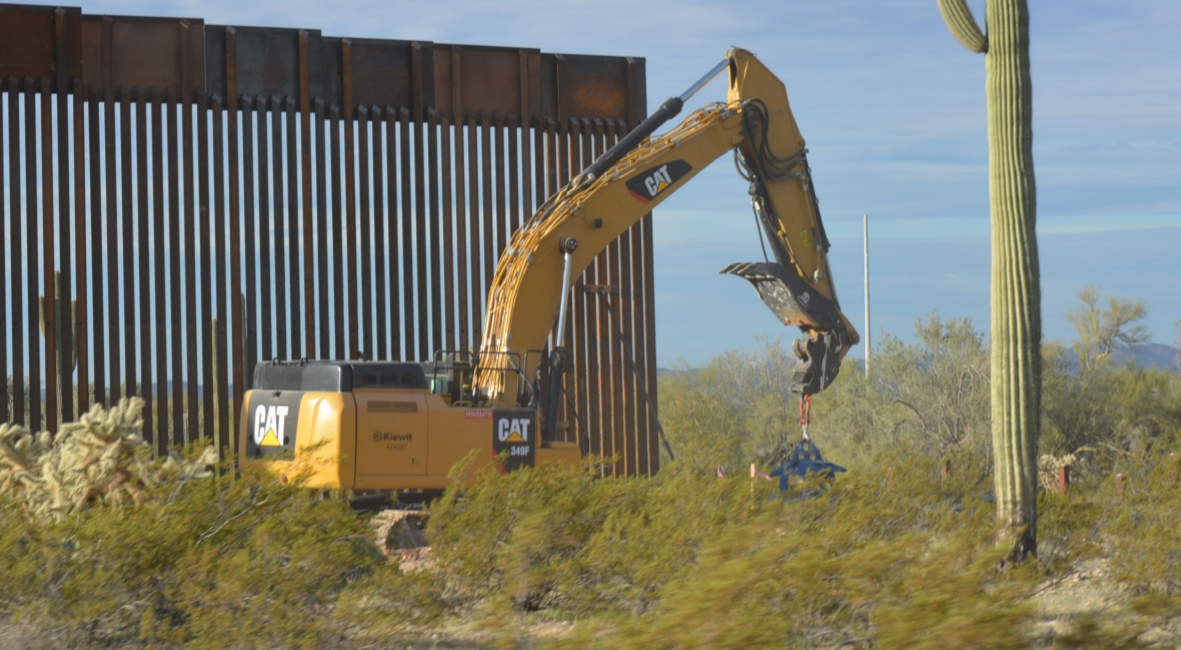
- Details
- By Native News Online Staff
WASHINGTON — Chair Raúl M. Grijalva (D-Ariz.) and the Democratic majority staff of the House Natural Resources Committee on Friday released a new report titled Repairing the Trump Administration’s Damage to U.S. Indigenous Communities & Charting a Better Way Forward, offering the incoming administration and the 117th Congress a broad overview of how federal policy in Indian Country can be improved.
The report was released one day after the announcement that President-elect Joe Biden will nominate Rep. Deb Haaland (D-NM) as the first American Indian Secretary of the Interior,
The report is not favorable to the current president of the United States and cites how his administration disregarded and disrepected tribal nations during the past four years. Below is an excerpt from the report:
"The Trump administration did not respect tribal members, tribal lands, sacred sites, or sacred animals. On the Fourth of July this year, the president and his close advisors hosted a fireworks display in the Black Hills of South Dakota, long considered an important tribal area and cultural landscape, despite multiple tribes’ requests to hold the event elsewhere."
The report includes four major sections:
- A history of President Trump’s racism toward and intentional disrespect of Native Americans, and the policy impacts his attitudes have had during his tenure;
- The desecration and destruction of sacred tribal sites;
- The Trump administration’s negligent failures in responding to the coronavirus pandemic throughout Indian Country; and
- Recommendations for the incoming Biden administration.
Chair Grijalva championed Rep. Haaland’s candidacy for the Interior position. He has said he looks forward to having an Interior secretary who prioritizes tribal input rather than following the demands of extractive industries, as the Trump administration has done.
Key recommendations include the creation of a White House Office of Native American Affairs, establishing a deputy secretary of Native American affairs position under the secretary of the Interior, and reestablishing and restructuring the Obama administration’s White House Council on Native American Affairs. One of the main problems identified in the report is the lack of advocacy on behalf of Indian Country within the executive branch and the White House itself, where tribal equities are often sidelined or subsumed into other, sometimes conflicting portfolios.
“With Secretary Haaland at the helm, the Interior Department can help end centuries of discrimination and live up to the best ideals of our country,” Grijalva said on Friday. “The Biden administration has more than a historic opportunity – it has a mandate to follow a more inclusive policy process and rebuild the relationship between the federal government and the American people. This report is a road map to help get that process started. I’m excited to work with Rep. Haaland and the entire Biden administration to center our environmental policies around community welfare and stakeholder input, which have been sorely lacking over the past four years.”
CLICK to read the entire report.
More Stories Like This
Native News Weekly (August 25, 2024): D.C. BriefsNavajo Nation Mourns the Passing of Former Vice President Rex Lee Jim
Deb Haaland Earns Endorsement From Communications Workers of America Local 7076
University Soccer Standout Leads by Example
Two Native Americans Named to Democratic Congressional Campaign Committee's“Red to Blue” Program
Help us defend tribal sovereignty.
At Native News Online, our mission is rooted in telling the stories that strengthen sovereignty and uplift Indigenous voices — not just at year’s end, but every single day.
Because of your generosity last year, we were able to keep our reporters on the ground in tribal communities, at national gatherings and in the halls of Congress — covering the issues that matter most to Indian Country: sovereignty, culture, education, health and economic opportunity.
That support sustained us through a tough year in 2025. Now, as we look to the year ahead, we need your help right now to ensure warrior journalism remains strong — reporting that defends tribal sovereignty, amplifies Native truth, and holds power accountable.
 The stakes couldn't be higher. Your support keeps Native voices heard, Native stories told and Native sovereignty defended.
The stakes couldn't be higher. Your support keeps Native voices heard, Native stories told and Native sovereignty defended.
Stand with Warrior Journalism today.
Levi Rickert (Potawatomi), Editor & Publisher

